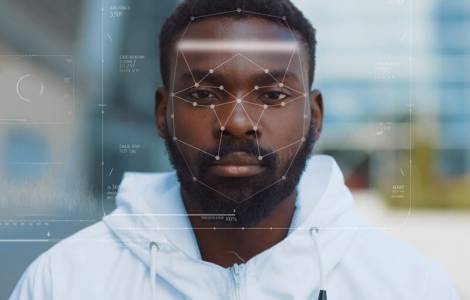Surveillance Technologies in Africa
Unmasking the $1 Billion African Surveillance Tech Dilemma: Human Rights Under Threat
Surveillance Technologies in Africa are becoming a double-edged sword, aimed at enhancing security but posing threats to fundamental human rights.
Unveiling the Surveillance Dilemma: A Billion Dollars and Basic Rights in Africa
In the heart of Africa, a complex web of surveillance technologies is reshaping the continent’s landscape, both for better and for worse. As we delve deeper into this realm, it becomes evident that African governments are spending a colossal sum of up to $1 billion annually on surveillance technologies. These sophisticated tools, officially employed to combat crime and terrorism, have, in some instances, led to misuse and the violation of citizens’ basic human rights. This dichotomy presents a profound dilemma that merits exploration.
Naija NewsBurrow Press Team Investigates
Our team at Naija NewsBurrow embarked on an investigation to uncover the intricacies of this issue, revealing a multifaceted landscape that is as intriguing as it is concerning. The report we’ve gathered from “Mapping the supply of surveillance technologies to Africa: case studies from Nigeria, Ghana, Morocco, Malawi, and Zambia,” conducted by the Institute of Development Studies, associated with the University of Sussex in Brighton, presents a compelling starting point for our exploration.
Predominantly Supplied by Global Giants
The surveillance technologies flooding the African continent primarily originate from global technology giants hailing from the USA, China, Europe, and Israel. These supplier companies often claim to only provide their services to governments, assuring that any illegal surveillance would breach their terms of service. European companies, in particular, are expected to conduct human rights assessments before supplying these technologies. Yet, despite these voluntary self-policing measures, the rapid expansion of surveillance continues, with mounting concerns about its impact on fundamental human rights.
Five Distinct Surveillance Technologies
The report scrutinizes five major types of surveillance technologies that African states have embraced:
-
Internet Eavesdropping: The monitoring of online activities, potentially infringing on privacy rights.
-
Cell Phone Eavesdropping: Surveillance of mobile phone communications, raising concerns about the intrusion into private conversations.
-
Social Media Monitoring: Tracking and analyzing social media activities, potentially infringing on freedom of speech and expression.
-
Safe City/Smart City: Implementing technologies for urban surveillance, a measure aimed at enhancing security but raising questions about privacy.
-
Biometric Identification: Employing biometric data for identification and verification, a measure with potential privacy implications.
Digitalization and Algorithmic Automation
One of the most intriguing revelations from our investigation is the digitalization and algorithmic automation of government surveillance across the African continent. Since the turn of the millennium, we’ve witnessed a significant shift toward digital surveillance, allowing for unprecedented levels of automation. State surveillance authorities can now monitor the communications of all citizens on a mass scale. Simultaneously, they can delve deeply into the lives of individuals, from opposition politicians to human rights defenders.
A Looming Challenge in Nigeria
Nigeria, one of the largest buyers of surveillance systems, faces its own set of security challenges, including terrorism, banditry, and kidnappings. The government’s use of advanced surveillance technology is an attempt to combat these issues. However, the concerns over human rights violations remain palpable. The delicate balance between security and citizens’ rights is a tightrope that Nigerian authorities must navigate.
A Plea for Awareness
In the midst of these challenges, voices of concern emerge. Bishop Matthew Hassan Kukah of Sokoto emphasizes the importance of freedom of speech and expression as inherent human rights. He reminds us that these rights are God-given and should not be infringed upon. He calls for the urgent need to raise awareness about privacy rights and the potential abuses of surveillance. His plea for research capacity building in African countries to effectively monitor the abuse of surveillance powers and its impact on citizens’ rights is a call to action that should not go unheeded.
Naija NewsBurrow Calls for Public Discourse
As we conclude our exploration of the intricate web of surveillance technologies in Africa, we invite you, our readers, to join the conversation. What are your thoughts on this billion-dollar investment in surveillance? How can African countries strike a balance between security and safeguarding human rights? Please share your perspectives in the comments section below, and let’s engage in a meaningful dialogue on this critical issue.
Together, we can help shape the future of surveillance technologies in Africa, ensuring that they serve the interests of both security and human rights.
For more thought-provoking articles and insights, stay tuned to Naija NewsBurrow News Network.
[ad_1]
Unmasking the $1 Billion African Surveillance Tech Dilemma: Human Rights Under Threat
In an era where technology is advancing rapidly, African governments are allocating substantial resources, up to $1 billion annually, to enhance their surveillance technologies. While the official purpose is to combat crime and terrorism, there’s growing concern that these technologies may infringe upon the fundamental human rights of the citizens they are meant to protect. The main suppliers of these surveillance technologies hail from the USA, China, Europe, and Israel. Although these supplier companies claim to exclusively serve governments and prohibit illegal surveillance, there’s mounting evidence that the implementation of these technologies could potentially breach user privacy and civil liberties.
The report “Mapping the supply of surveillance technologies to Africa,” conducted by the Institute of Development Studies affiliated with the University of Sussex in Brighton, delves into this growing concern. It highlights the significant digitalization and algorithmic automation of government surveillance throughout Africa, enabling authorities to monitor citizens on a massive scale. Whether it’s monitoring internet activities, cell phone communications, social media, or implementing biometric identification, the impact on privacy rights is substantial.
This issue underscores the importance of individual privacy and the potential for surveillance technologies to be misused. As you read further, you’ll discover a range of home security products that can help protect your privacy and ensure your peace of mind. Stay informed, stay secure, and explore these options to safeguard your home and personal information in an increasingly interconnected world.
[ad_1]
Shop Products On Amazon

[ad_1]
Shop Products on Ebay

[ad_1]
Trending Similar Stories in the News
AFRICA - African governments spend a total of $1 billion per year on Agenzia Fides...
Africa CDC at the United Nations General Assembly (UNGA africacdc.org...
[ad_1]
Trending Videos of Surveillance Technologies in Africa
How the Government Tracks You: NSA Surveillance
A Former FBI Agent Explains the Terrorist Watch List | Explorer
[ad_2]
Similar Posts, Popular Now
Cocoa Crisis in Nigeria: Merchants Battle Cocoa Shortage in a Race for Survival
Government Corruption Assessment Unveils Shocking Insights into Nigeria’s Struggle Against Misconduct
APC Clashes with Babachir Lawal: Explosive Response to Tinubu Election Controversy
Breaking: Urgent Diphtheria Vaccination Crisis Unfolds in Nigeria
Veronica Charles: Rising Star in Women’s Basketball Preseason All-OVC Selection





![Pdp Bot Lacks Power To Compel Anyanwu To Resign As Fct minister, nyesom wike [photo: bbc]](https://naija.newsburrow.com/burrow_content/uploads/2023/10/PDP-BoT-lacks-power-to-compel-Anyanwu-to-resign-as-150x150.jpg)
Unmasking the $1 Billion African Surveillance Tech Dilemma: Human Rights Under Threat
💬 What’s your take? Drop a comment below! ⬇️
#BreakingNews #LatestUpdate #StayInformed
📖 Read More: https://tinyurl.com/2xzjp52q